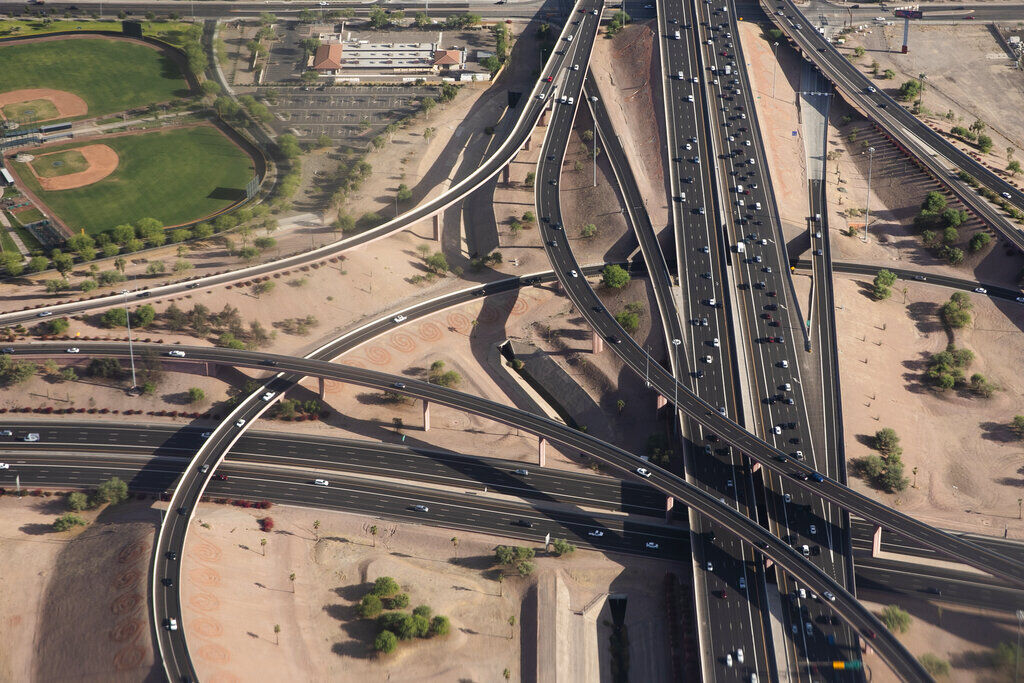PHOENIX — Gov. Katie Hobbs signed legislation Tuesday to allow Maricopa County voters to decide on extending a sales tax for transportation projects, setting the stage for opponents to fight it at the ballot box.
The Democratic governor said the levy “will secure our economic future and give every Arizonan an opportunity to succeed in our thriving economy.’’ She also praised the bipartisan approval by more than half the Republican lawmakers and all the Democrats but one.
All the legislation does is authorize the Board of Supervisors to call a special election, presumably in 2024, to give voters the last word on extending the tax 20 years, to 2045.
Proponents have characterized the measure as simply giving voters the opportunity to keep in place the half-cent tax first approved in 1985. A provision in state law requires Maricopa County, and only Maricopa County, to get such legislative permission.
State lawmakers had approved a new vote just last year, only to have it vetoed by then-Gov. Doug Ducey, who said he was concerned about the timing of a tax extension — even one that required voter approval — because of economic conditions.
That sent the issue back to lawmakers this year. With a more fiscally conservative Legislature, they sent Hobbs a bill to extend the tax — but only if there were two separate votes: one for roads and the other for mass transit. Hobbs vetoed that plan.
Negotiations resulted in the bill she signed Tuesday, one with a single vote but some significant curbs on how the money could be used. Those include capping mass transit at 37% of the estimated $20 billion the tax will raise over 20 years and a specific bar against using any of the money to extend the light rail system.
Scot Mussi, president and executive director of the Arizona Free Enterprise Club, said that was still a “setback.’’
Mussi and his organization contend that, even with the changes, the measure allows “radical plans like road diets,’’ which are essentially changes in street construction or layout to slow traffic and, from his perspective, force people out of their personal vehicles.
The big issue has been how much goes to projects other than new or improved roads. Mussi called other projects “failed transit projects that seemingly only enrich consultants and special interests.’’
Now his group’s aim is to convince voters to reject the plan.
That comes despite a poll done by OH Predictive Insights which said 56% of those questioned support a renewed half-cent tax, with 17% opposed and 26% undecided. Republicans surveyed were 47% in favor and 30% against, said pollster Mike Noble.
In a separate question, Noble found that 54% say the current light rail system should be expanded, with 6% saying there should be no light rail.
Rep. Alexander Kolodin, R-Scottsdale, who voted against allowing this plan to go to voters, wasn’t impressed by those poll findings.
“The reason I doubt the accuracy of the polling is, if it were true that spending (nearly) 40% of this new tax on public transportation funding was something the voters wanted, nobody would ever have fought bifurcation,’’ or the splitting of the measure into two measures for Maricopa County voters, one for roads and one for mass transit, as conservatives had sought, he said.
In vetoing that plan, Hobbs accused backers of “playing politics’’ and “holding Arizona’s economy hostage.’’
Kolodin, however, said he thinks voters are willing to listen to arguments about why this new plan is unacceptable.
“The messaging has to be we’re growing at a rapid pace, we’ve got to have our transportation funding dedicated to the roads that will allow us not to turn into L.A.,’’ he said. “We can’t have 40% of it siphoned off for public transit that services less than a percent of the population.’’
Not all Republican agree, with Senate President Warren Petersen, R-Gilbert, issuing a news release calling what lawmakers approved the “most conservative Prop. 400 plan in Arizona history.’’
He cited the elimination of funding from the levy for light rail expansion and the 63% earmarked for roads and freeways. Petersen said it also ties the hands of the Maricopa Association of Governments, the agency made up of local community leaders that decides and funds the projects.
“No longer can dollars be shifted unilaterally after taxpayers have approved the measure,’’ he said.
The lone Democrat to oppose the plan was Sen. Sally Ann Gonzales of Tucson. Unlike the Republicans who voted “no,’’ her objection was the fact that the measure bans funding for new light rail and includes a provision barring the state from imposing limits like California’s on the percentage of vehicles sold that must not be powered by fossil fuels.
Get your morning recap of today's local news and read the full stories here: http://tucne.ws/morning





